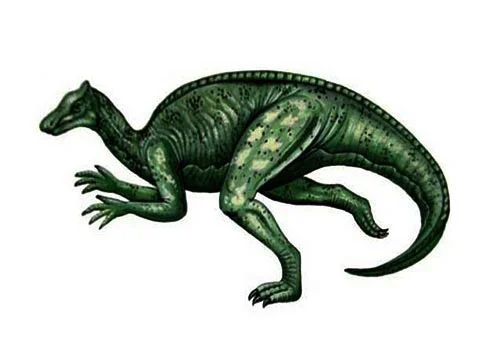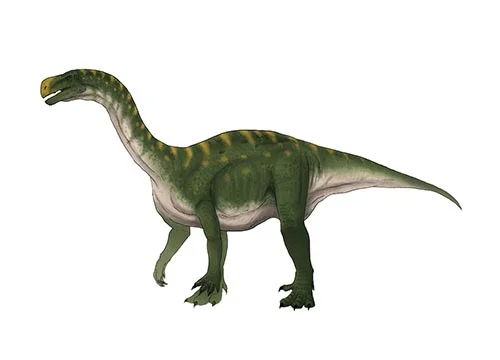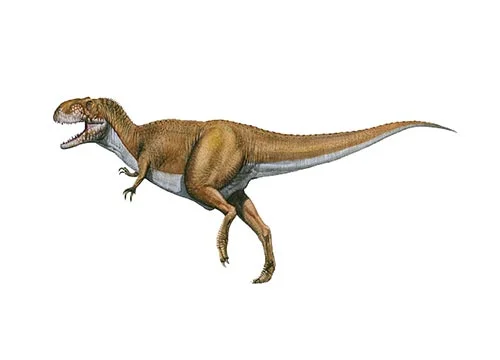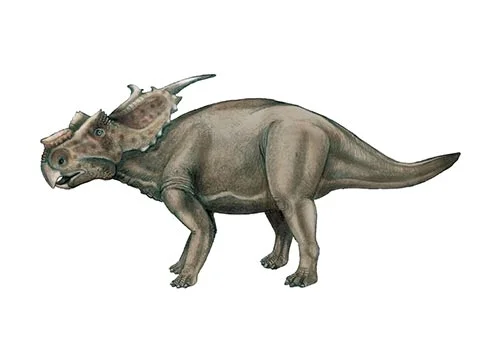Eolambia (Dawn Lambe - after the palaeontologist Lawrence Lambe)

E-oh-lam-be-ah
James Kirkland - 1998
Herbivore
Estimated 6-9 meters long
Large Theropod
E. caroljonesa (type)
USA, Utah - Cedar Mountain Formation, Mussentuchit Member
Late Cretaceous, 98 million years ago
Eolambia Facts
Eolambia, meaning “Dawn Lambe,” is a genus of herbivorous dinosaur that lived during the Late Cretaceous period, approximately 98 million years ago, in what is now North America.
Eolambia was a relatively large dinosaur, with a long neck and tail, and a relatively small head. Its teeth were adapted for grinding plant material, and its overall body plan suggests that it was well-suited to living in forested environments. Eolambia likely fed on low-growing plants, using its long neck to reach vegetation that was out of reach for other herbivores.
The discovery of Eolambia has provided important insights into the diversity and evolution of early hadrosaurid dinosaurs during the Late Cretaceous period. Its physical characteristics suggest that it was a highly specialized and successful species, adapted to its environment and ecological niche.
Despite its importance, relatively few fossils of Eolambia have been found, making it a relatively poorly known dinosaur. Nonetheless, it remains a fascinating and important species for scientists and dinosaur enthusiasts alike, offering important clues into the complex ecosystems and evolutionary processes of the Late Cretaceous period in North America. The genus was named after the Canadian paleontologist Lawrence Lambe, who was instrumental in the early study of dinosaurs in North America.



